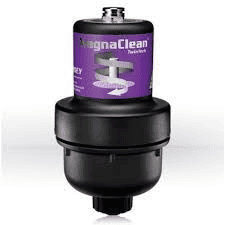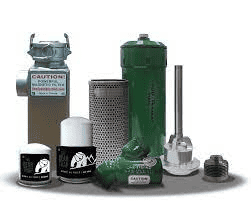The pipes inside heating systems can, over time, become clogged with corrosive material such as rust. This kind of build up can impair the efficiency of a heating system. To prevent this from affecting the operation of the system, magnetic filtration units can be fitted. If you’re wondering how a magnetic filtration unit works, read on to find out.
Magnetic filtration units are often compared to filters, but they’re not the same. One important difference is the particle size. Magnetic filters can remove particles as small as one micron in size while barrier filters leave particles smaller than five microns in fluid. Those particles can affect fluid performance and increase bacteria.
The magnetic filter at the core of a magnetic filtration system is made of powerful magnets, usually neodymium, which are temperature-tolerant and attract debris in a fluid. Magnetic filters can be added to a new or retrofitted heating system. They are also easy to maintain and service. Some filters even feature a gravity filter to remove non-ferrous debris. For best results, check your heating system’s manufacturer’s installation instructions to determine whether magnetic filters are right for you.
Magnetic filters are an excellent solution for central heating systems. They can improve the efficiency of your central heating system, removing unwanted waste materials. This means that your energy bills will be lower. And because you won’t need to clean your boiler system as frequently, cleaning the magnetic filter is much easier than cleaning the entire system. In addition, magnetic filters require only routine maintenance and don’t accumulate sludge. When you need Cheltenham Boiler Repair, go to a site such as www.combi-man.com
Magnets are very effective in removing debris from water and preventing sludge buildup in pipes. Over time, these materials can clog the pipes, causing the boiler to run inefficiently. An inefficient boiler can cause energy bills to rise, and you might need to replace it altogether. There are many different types of magnetic filters on the market today.
The size of particles determines how much magnetic force the particles can exert on each other. For example, a particle size of 2 microns is x8 times more magnetically attracted to a magnet than a particle of 10 microns. Similarly, bigger ferromagnetic particles can be separated more easily from fluids than smaller particles. The separating force is directly proportional to the magnetic gradient and particle magnetisation.


